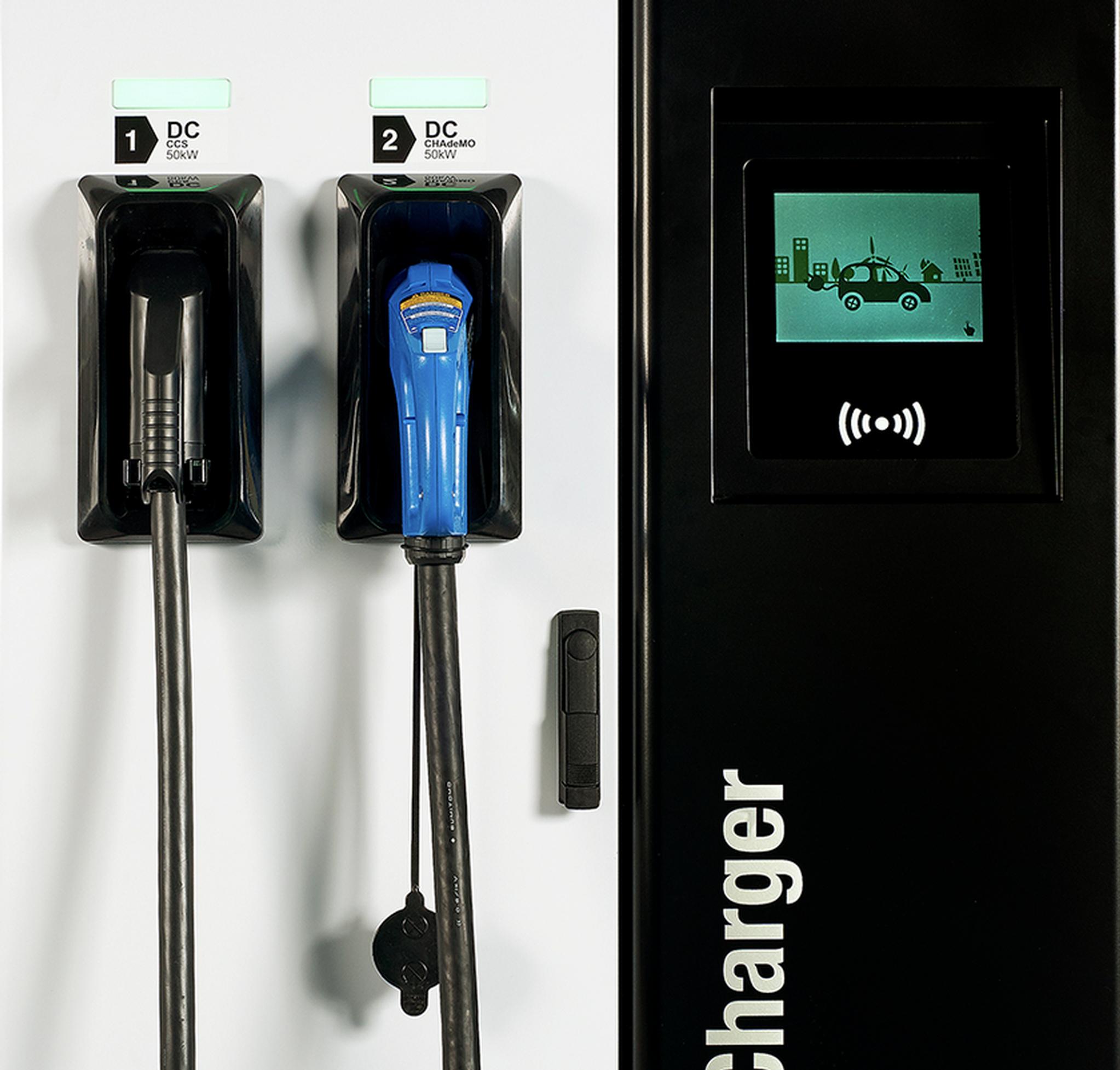

With electric cars accounting for 11.6% of all new car registrations in the UK last year, the next development in the EV world is ensuring that widespread access to EV infrastructure is possible. Innovation in these areas is currently helping facilitate further adoption of electric vehicles.
It’s no secret that the electric car market is experiencing a period of rapid growth. With the sale of new petrol and diesel cars outlawed from 2030, demand for electric cars is growing.
However, one of the main barriers to adoption is the lack of available infrastructure, such as charging ports, to support electric cars.
In parts of Europe and Asia especially, access to home charging ports is not always possible due to limited parking availability. In the UK, however, trials are underway for pop-up charging points. Developed by Cheltenham-based design company Duku, these units are stored underground when not in use, reducing street clutter.
In order to enable the widespread adoption of electric vehicles, charging points must be easily accessible. The UK is beginning to follow in the steps of the US, with growing numbers of publicly-usable charging points.
Another potential barrier to the widespread adoption of electric vehicles is their speed of charging. Today, 50kW EV chargers are the most common form of public charger, and usually take around 30 minutes to fully charge a vehicle.
Technology that charges your car in just 5-10 minutes does exist, reducing the amount of downtime for EV users. Most electric vehicles available on the market, however, are incompatible with these faster chargers; the Porsche Taycan is currently one of the fastest electric vehicles on the market, charging to 80% in just 22 minutes.
Convenience is key to the further adoption of electric vehicles; with a growing number of petrol stations installing EV charging facilities, traditional fossil fuel stations are expected to eventually make the transition to full-time electric vehicle charging points.
Build costs continue to be a barrier to the installation of these charging facilities; the potential for digital advertising to be implemented on EV charging stations may allow some of the cost of installation to be recouped. Innovative, specially made exterior touchscreens promise to revolutionise advertising in this arena, making EV charging centres a realistic prospect for the future.
Tesla may be dominating news headlines when it comes to self-driving cars, but there are plenty of other companies around the world working to make autonomous cars a reality. For example, Michigan-based start-up May Mobility is augmenting public transport by operating autonomous shuttle bus services.
By actively involving local communities in the planning process for their cars’ routes, May Mobility is creating publicly available autonomous driving solutions that are tailored to each location’s unique infrastructure. This tailored process helps improve the route efficiency of the self-driving cars, and should, in theory, help alleviate some of the safety concerns surrounding some autonomous vehicles.
Plus, whilst Tesla’s price point is enough to prevent a significant portion of the world’s population from enjoying access to a self-driving electric vehicle, May’s offering is designed to be more affordable and accessible.
Given the recent outcry about the energy cost of digital advertising and signage, you’d be forgiven for questioning what’s wrong with traditional, un-smart bus stops. However, Mobility-as-a-Service (MaaS) is a growing sector that integrates various forms of transport and transport-related services into a single comprehensive package.
Japanese company DISIGN‘s new Busola ECO Smart Bus Stop represents the newest strides in this sector, pairing environmental considerations with the latest developments in MaaS. The smart bus stop represents an informative improvement to current services that doesn’t need to be connected to the national power grid, thereby reducing energy usage.
Completely wireless, the new form of bus stop promises to revolutionise public transport use. Powered by a roof-mounted solar system, the bus stop uses a low power-consuming electronic paper display to minimise energy usage.
A wealth of information will soon be available for bus users, from real-time bus operating conditions to earthquake and disaster information. In congested areas, daily details on air quality and particulate information will be available, with interactive maps highlighting affected zones. Safety comes first, with flooding conditions and other information also available via the interactive map.
With a wealth of improvements taking place across both personal and public transport, the future promises two things. Concerted efforts are being made to decrease the carbon footprint of the world’s transport, and with the ever-increasing adoption of electric vehicles – and easier access to EV infrastructure – net-zero targets become much more achievable.
Not only this, but with autonomous cars becoming increasingly viable, and Mobility-as-a-Service representing a growing sector, you can expect to see improvements to the user experience in the months and years to come.
Key findings:
Ian Crosby is sales and marketing director at touchscreen product manufacturer Zytronic. He is responsible for managing Zytronic’s global commercial activities, primarily its range of Projected Capacitive touch sensing products. Zytronic also manufactures ElectroglaZ transparent power delivery technology, allowing electronic devices to be powered invisibly through a pane of glass.

TransportXtra is part of Landor LINKS
© 2026 TransportXtra | Landor LINKS Ltd | All Rights Reserved
Subscriptions, Magazines & Online Access Enquires
[Frequently Asked Questions]
Email: subs.ltt@landor.co.uk | Tel: +44 (0) 20 7091 7959
Shop & Accounts Enquires
Email: accounts@landor.co.uk | Tel: +44 (0) 20 7091 7855
Advertising Sales & Recruitment Enquires
Email: daniel@landor.co.uk | Tel: +44 (0) 20 7091 7861
Events & Conference Enquires
Email: conferences@landor.co.uk | Tel: +44 (0) 20 7091 7865
Press Releases & Editorial Enquires
Email: info@transportxtra.com | Tel: +44 (0) 20 7091 7875
Privacy Policy | Terms and Conditions | Advertise
Web design london by Brainiac Media 2020